From the fertile valleys of the Pacific Northwest to the tech corridors of Silicon Valley, Fall Line Capital has carved a unique niche in agricultural technology investment. With over $518 million in assets under management, this San Mateo-based firm isn’t just writing checks – they’re cultivating a future where precision irrigation and smart water management reshape modern farming. Their approach combines hands-on farmland operations with strategic investments in cutting-edge water technology, creating a testing ground for innovation that goes beyond traditional venture capital. For water entrepreneurs and impact investors, Fall Line Capital represents a compelling case study in how patient capital, agricultural expertise, and technological innovation can converge to address one of agriculture’s most pressing challenges: water efficiency.
Fall Line Capital is part of my Ultimate Water Investor Database, check it out!
Investor Name: Fall Line Capital
Investor Type: PE
Latest Fund Size: $125 Million
Dry Powder Available: Yes
Typical Ticket Size: $250k – $1M
Investment Themes: Connected irrigation, precision agriculture infrastructure, farmland water efficiency
Investment History: $7200000 spent over 3 deals
Often Invests Along:
Already Invested In: Lumo, Plutoshift
Leads or Follows: Follow
Board Seat Appetite: Moderate
Key People: Eric O’Brien, Clay Mitchell, Scott Day
The Strategic Farmer-Investor Hybrid
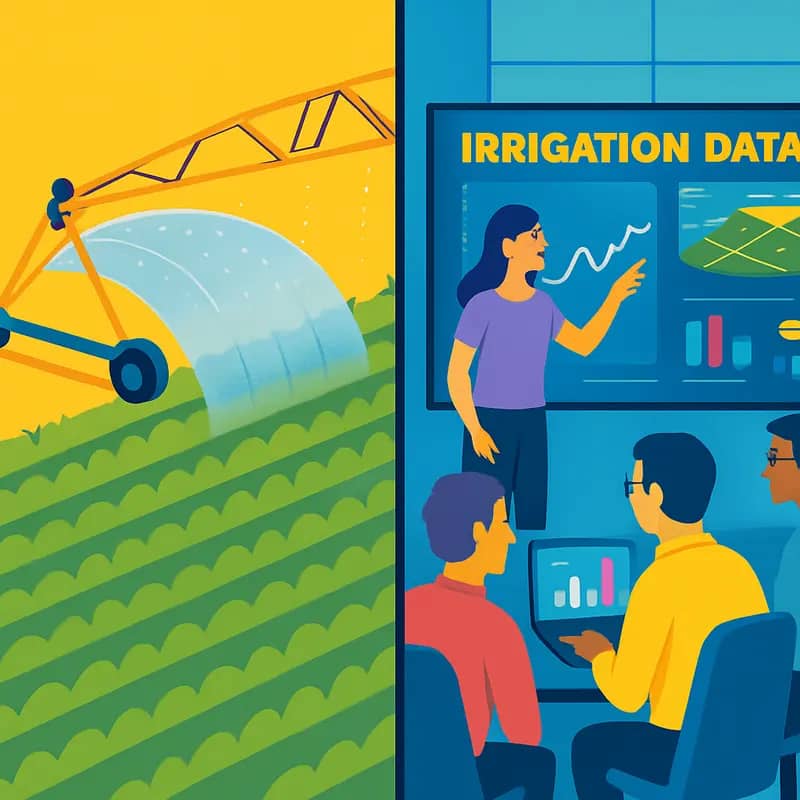
Fall Line Capital has pioneered a distinctive approach to agricultural technology investment by combining direct farmland ownership with strategic investments in water technology solutions. This hybrid model creates a powerful feedback loop between real-world farming operations and innovative water management technologies.
Operating as both farmer and investor gives Fall Line unique insights into agricultural water challenges that many traditional venture capital firms lack. Their farmland portfolio serves as a proving ground where promising water technologies can be tested and validated in actual farming conditions. This hands-on experience informs their investment decisions and helps portfolio companies refine their solutions based on practical feedback.
The firm’s dual role enables them to understand intimately how water technologies perform across different soil types, crops, and climate conditions. When evaluating potential investments, Fall Line can quickly assess whether a solution addresses real pain points that farmers face. They leverage their farming expertise to help portfolio companies optimize their technologies for commercial agriculture.
This strategic approach has proven particularly valuable in water technology, where many solutions look promising in controlled environments but face implementation challenges in real-world farming operations. By operating their own farmland, Fall Line can identify these practical hurdles early and work with portfolio companies to overcome them. As explored in How Water Trading Unbelievably Killed One Million Fishes and a River, the agricultural water sector requires careful balance between innovation and practical implementation.
The model also creates natural distribution channels for successful technologies. Fall Line’s farming operations become reference sites where other agricultural businesses can see new solutions in action. This real-world validation helps accelerate market adoption of promising water management technologies.
Beyond individual investments, this hybrid approach generates valuable data about agricultural water use patterns, technology adoption barriers, and optimization opportunities. Fall Line leverages these insights to identify emerging trends and guide their investment thesis in water technology.
The firm’s comprehensive understanding of both farming operations and technology development has positioned them to bridge the gap between agricultural needs and innovative solutions. Their unique model demonstrates how strategic investors can add value beyond capital by creating direct feedback loops between end users and technology developers.
Water Tech Investment Themes
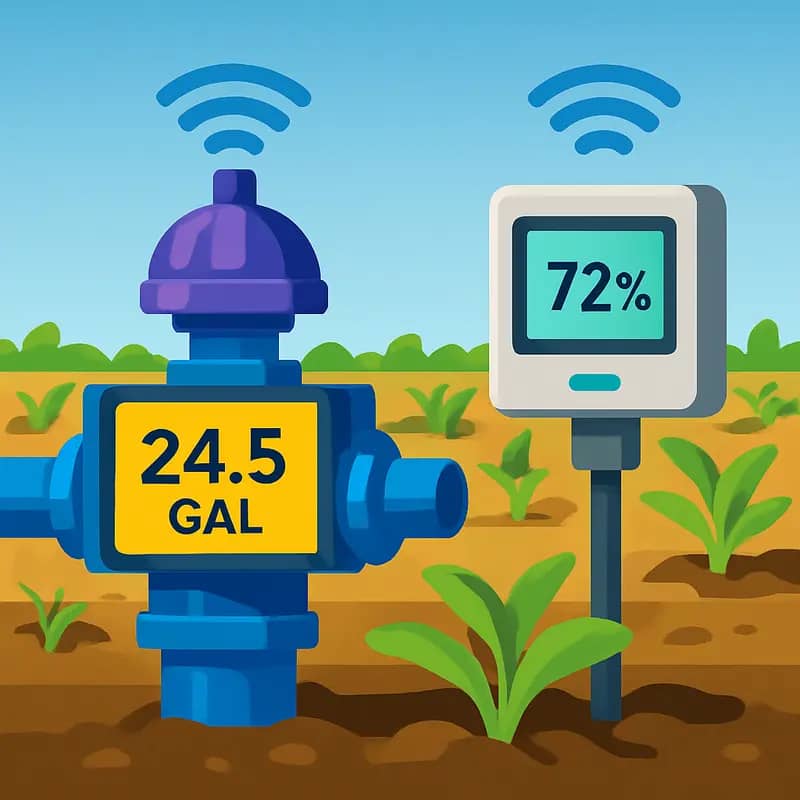
Fall Line Capital’s water technology investment strategy centers on connected irrigation solutions that maximize water efficiency while minimizing waste in agricultural operations. The firm’s approach reflects a deep understanding that smart water management represents one of agriculture’s greatest opportunities for sustainability and operational excellence.
At the core of Fall Line’s water tech thesis is the recognition that precision irrigation requires both hardware and software integration. The firm prioritizes technologies that combine advanced sensing capabilities with intelligent control systems, enabling farmers to apply water with unprecedented accuracy. These solutions typically incorporate soil moisture monitoring, weather data analysis, and crop-specific algorithms to optimize irrigation timing and volume.
A particularly compelling focus area is the development of automated irrigation systems that can independently adjust water delivery based on real-time field conditions. By investing in companies developing connected sprinkler systems, soil sensors, and irrigation automation platforms, Fall Line helps accelerate the adoption of precision irrigation practices that can reduce water usage by up to 30% while maintaining or improving crop yields.
The firm’s investment criteria emphasize scalable solutions that can be readily deployed across diverse agricultural operations. Special attention goes to technologies that offer clear return on investment through water savings, reduced labor costs, and improved crop quality. This practical approach aligns with Fall Line’s unique position as both an investor and agricultural operator, allowing them to validate technology effectiveness through real-world implementation.
Beyond individual technology components, Fall Line recognizes the importance of data integration platforms that can aggregate information from multiple sources to provide actionable insights for irrigation management. Their investments support the development of comprehensive solutions that help farmers make more informed decisions about water usage across their operations.
Consistent with the broader trend toward sustainability-focused water investments, Fall Line’s water tech portfolio reflects a balance between immediate operational improvements and long-term resource conservation. This dual focus positions them to capture value both from efficiency gains and the growing premium placed on sustainable agricultural practices.
The firm’s water technology investments also extend to solutions for water quality monitoring, treatment, and reuse, recognizing that water security in agriculture requires a holistic approach to resource management. This comprehensive strategy ensures that portfolio companies address not just water quantity challenges but also quality and reliability concerns that impact agricultural productivity.
Investment Strategy and Partnership Approach

Fall Line Capital’s investment approach reflects a calculated balance between caution and conviction in the agtech space. The firm has carved out a distinct niche by preferring to participate in early-stage funding rounds rather than lead them, allowing them to leverage the due diligence and validation of other experienced investors while maintaining significant influence in their portfolio companies.
This co-investment strategy has proven particularly effective in the water technology sector, where Fall Line frequently partners with established agtech investors who bring complementary expertise. By following rather than leading rounds, the firm can capitalize on the momentum of promising startups while mitigating some of the inherent risks of early-stage investing.
Typically, Fall Line targets companies that have progressed beyond the proof-of-concept phase but haven’t yet achieved broad market penetration. Their sweet spot lies in ventures that have demonstrated technical feasibility and early customer traction, usually seeking Series A or B funding rounds. This positioning allows them to support companies through critical scaling phases while avoiding the highest-risk seed stage investments.
The firm’s partnership approach extends beyond mere capital provision. Fall Line leverages its deep agricultural expertise and network to help portfolio companies refine their go-to-market strategies and establish crucial connections within the farming community. This hands-on engagement distinguishes them from purely financial investors and aligns with their mission to drive meaningful innovation in agricultural water efficiency.
In terms of investment parameters, Fall Line typically commits between $2-10 million per deal, though they maintain flexibility based on opportunity specifics. They prefer to secure board observer rights at minimum, ensuring they can actively monitor and support portfolio company development while maintaining strategic alignment with co-investors.
What sets Fall Line’s strategy apart is their emphasis on building synergistic relationships between portfolio companies. As discussed in “The Fine Line Between Plug and Play & Plug and Pray”, they actively seek opportunities where multiple portfolio companies can collaborate to deliver more comprehensive solutions to agricultural water challenges.
This interconnected approach helps create a multiplier effect, where individual investments strengthen the overall portfolio while accelerating the adoption of water-efficient technologies across the agricultural sector. Through this strategy, Fall Line has positioned itself as not just an investor but a catalyst for transformation in agricultural water management.
Future Horizons in Water Innovation
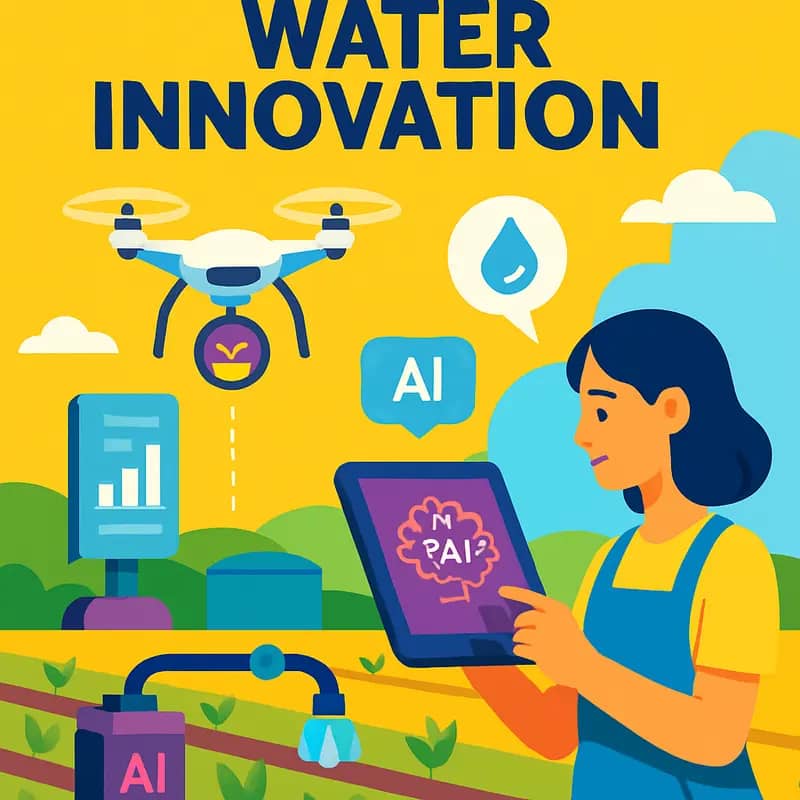
Fall Line Capital stands poised to reshape agricultural water management through strategic investments in emerging water technologies. Their trajectory points toward three key innovation vectors that promise to transform farming’s relationship with water resources.
Precision irrigation represents the first major frontier. Advanced soil moisture sensing networks, coupled with machine learning algorithms, enable dynamic irrigation scheduling that responds to real-time crop needs. These systems can reduce water usage by up to 30% while maintaining or improving yields. Fall Line’s investment thesis increasingly focuses on startups developing affordable, scalable solutions that integrate seamlessly with existing farm operations.
The second vector centers on closed-loop water systems that maximize conservation through treatment and reuse. Novel filtration technologies, particularly those utilizing biomimetic membranes and advanced oxidation processes, show tremendous potential for treating and recycling agricultural runoff. These innovations align with Fall Line’s emphasis on sustainability and resource efficiency, while offering attractive returns through reduced input costs.
Perhaps most transformative is the emergence of digital agriculture platforms that enable holistic water management. These systems aggregate data from multiple sources – weather forecasts, soil sensors, satellite imagery, and crop models – to optimize water allocation across entire farming operations. Fall Line recognizes that success in this space requires more than just technical innovation; it demands solutions that account for the practical realities of farming operations and the need for robust ROI metrics.
Looking ahead, Fall Line appears particularly interested in technologies that bridge these three vectors. For instance, they’re exploring investments in artificial intelligence systems that can simultaneously optimize irrigation timing, manage water treatment processes, and predict future water needs based on comprehensive data analysis. This integrated approach reflects a sophisticated understanding of agriculture’s water challenges.
The firm’s investment strategy increasingly emphasizes solutions that can scale across diverse agricultural contexts while remaining accessible to mid-sized farming operations. This focus on practical scalability distinguishes their approach from investors solely chasing technological breakthroughs.
As climate pressures intensify and water resources become increasingly constrained, Fall Line’s strategic positioning in water innovation becomes even more critical. Their emphasis on technologies that deliver measurable efficiency gains while maintaining agricultural productivity places them at the forefront of sustainable farming’s evolution.
The Genesis: From Fields to Finance
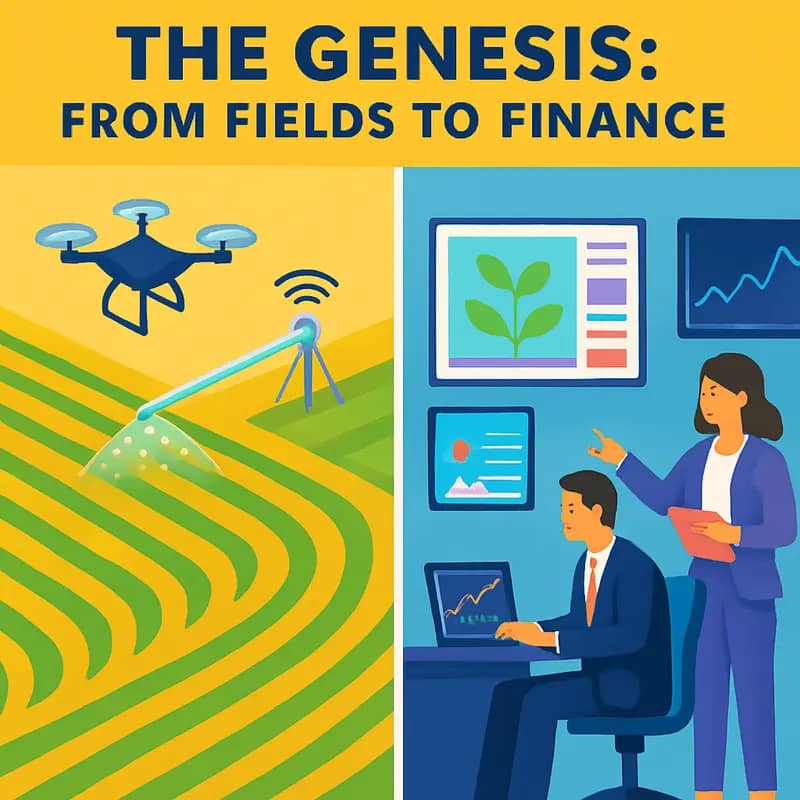
Clay Mitchell’s journey from a fourth-generation Iowa farmer to co-founder of Fall Line Capital represents a pivotal intersection of agricultural expertise and investment acumen. His hands-on experience with precision agriculture and water management provided crucial insights into the inefficiencies plaguing modern farming practices. When he partnered with Eric O’Brien, whose background spanned venture capital and technology investments, their complementary perspectives sparked a revolutionary investment thesis.
The duo recognized that water efficiency in agriculture wasn’t just an environmental imperative—it represented an untapped financial opportunity. Mitchell’s practical understanding of irrigation systems and soil management perfectly complemented O’Brien’s ability to identify scalable technologies and structure investments. Together, they crafted an approach that would transform agricultural water usage while generating substantial returns.
Their thesis rests on three foundational pillars. First, they identified that traditional farming practices often waste up to 40% of irrigation water through imprecise application and poor timing. Second, they recognized that technological solutions for water efficiency existed but lacked the necessary capital and agricultural expertise for widespread adoption. Third, they understood that climate change would make water an increasingly valuable resource, creating urgency for efficiency improvements.
What sets Fall Line’s approach apart is their deep integration of farming knowledge with investment strategy. Rather than viewing agriculture through a purely financial lens, they evaluate opportunities based on real-world implementation potential. This practical perspective helps them avoid common pitfalls that plague agtech investors who lack direct farming experience.
The partnership between Mitchell and O’Brien also created a unique deal flow advantage. Mitchell’s credibility with the farming community opens doors to promising technologies that might otherwise go unnoticed by traditional venture capital. Meanwhile, O’Brien’s financial expertise helps structure investments that align the interests of farmers, technologists, and investors.
Their vision extends beyond individual investments to encompass the entire agricultural water efficiency ecosystem. They recognize that solving water challenges requires simultaneous advances in measurement, application, and management technologies. This holistic understanding shapes their portfolio strategy, leading them to invest across the value chain rather than focusing on isolated solutions.
Portfolio Innovation: Water Tech Breakthroughs
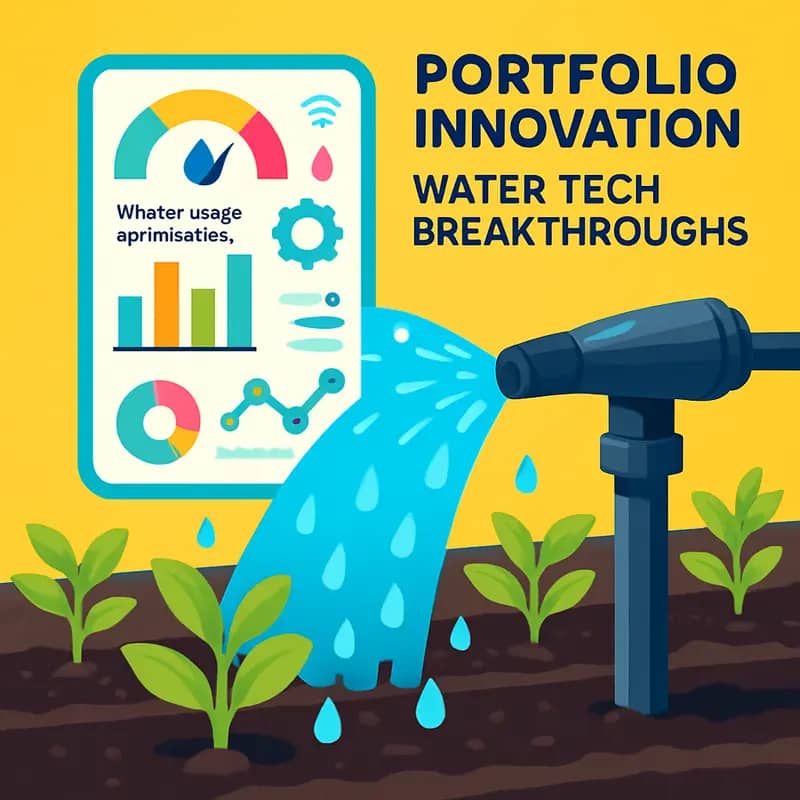
Fall Line Capital’s strategic investments in water technology companies reflect a sophisticated understanding of agriculture’s evolving water management needs. The firm’s portfolio demonstrates a clear focus on technologies that maximize water efficiency while maintaining or improving crop yields.
At the heart of Fall Line’s investment strategy lies precision irrigation technology. Rather than pursuing broad-spectrum solutions, the firm has strategically backed companies developing sensors and monitoring systems that enable microsecond-level irrigation decisions. These systems integrate soil moisture data, weather patterns, and crop-specific water requirements to deliver precisely what plants need, when they need it.
A particularly noteworthy aspect of Fall Line’s investment approach is their emphasis on scalable solutions that work within existing agricultural infrastructure. This aligns with their philosophy of making smart water management accessible and practical for farmers of all sizes.
The firm’s portfolio companies have pioneered breakthrough technologies in three key areas. First, advanced filtration systems that enable water reuse while removing agricultural chemicals and dissolved solids. Second, smart distribution systems that eliminate waste through predictive maintenance and real-time flow optimization. Third, data analytics platforms that transform water usage data into actionable insights for farm managers.
These investments have yielded impressive results. Portfolio companies report water savings ranging from 30% to 50% compared to traditional irrigation methods, while maintaining or improving crop yields. The economic impact is equally significant, with adopters of these technologies seeing reduced pumping costs and lower labor requirements for irrigation management.
Beyond direct water savings, Fall Line’s investments have catalyzed innovation in adjacent areas. Their portfolio companies have developed complementary technologies for soil health monitoring, fertilizer optimization, and crop stress detection. This holistic approach ensures that water efficiency gains translate into broader agricultural sustainability improvements.
The success of these investments validates Fall Line’s thesis that water technology represents a critical leverage point for agricultural productivity. By focusing on solutions that deliver both environmental and economic benefits, the firm has created a portfolio that addresses immediate farming needs while building long-term resilience in agricultural water management.
The Data-Driven Approach to Water Management

Fall Line Capital’s approach to optimizing water usage transcends traditional agricultural methods through sophisticated data analytics and precision technology deployment. At the core of their strategy lies an intricate network of soil moisture sensors, weather stations, and satellite imagery that continuously feeds data into their proprietary analytics platform.
The firm’s data infrastructure captures granular insights about soil conditions, crop water requirements, and environmental factors across their portfolio of farmland investments. Advanced machine learning algorithms process this multi-layered data to generate dynamic irrigation schedules tailored to specific crop needs, soil types, and microclimates. This precision eliminates the guesswork from irrigation timing and volume, ensuring crops receive exactly what they need, when they need it.
What sets Fall Line’s methodology apart is their holistic integration of multiple data streams. Beyond basic soil moisture readings, their systems analyze historical weather patterns, real-time evapotranspiration rates, and crop growth stage data to forecast irrigation needs with remarkable accuracy. Satellite and drone imagery provide additional validation through regular assessment of crop health and water stress indicators.
The impact of this data-driven approach has been transformative. Portfolio farms have reported water savings of 20-40% while maintaining or improving yields. The system’s predictive capabilities help farmers stay ahead of weather events and potential stress conditions, enabling proactive rather than reactive water management. This sophisticated approach to resource optimization has proven particularly valuable in water-stressed regions where every drop counts.
Crucially, Fall Line’s technology stack is designed for scalability. Their platform integrates seamlessly with existing irrigation infrastructure, allowing rapid deployment across diverse agricultural operations. The system’s machine learning components continuously improve recommendations based on accumulated data, creating a virtuous cycle of optimization.
Beyond immediate water conservation, this data-driven methodology generates valuable insights for long-term agricultural planning. The rich datasets inform decisions about crop selection, planting timing, and land development strategies. This comprehensive approach to agricultural water management demonstrates how sophisticated data analytics can transform traditional farming practices into precise, resource-efficient operations.
Future Vision: Scaling Water Innovation
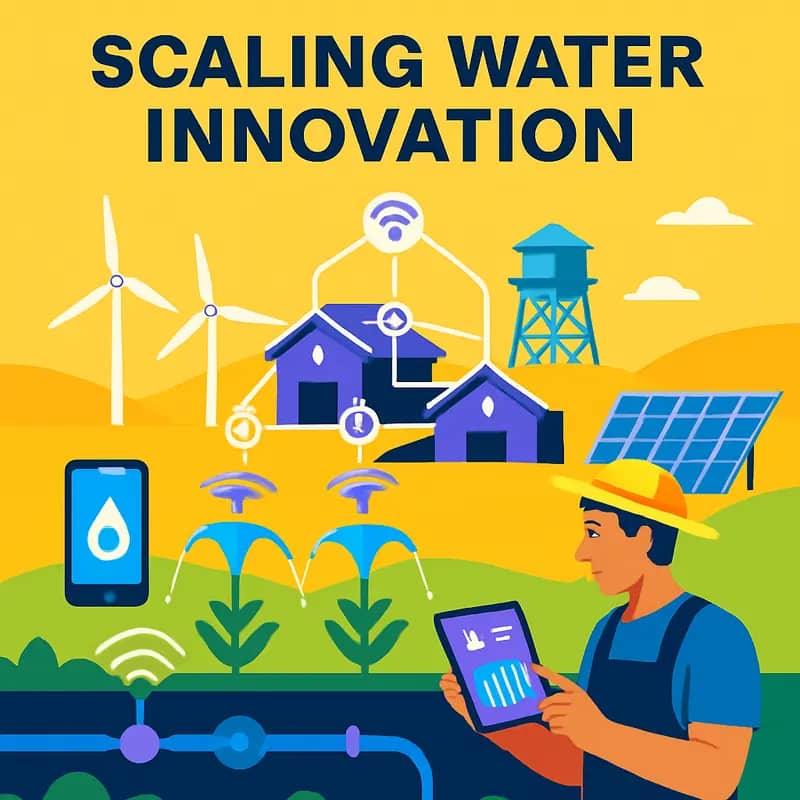
Fall Line Capital’s vision for scaling water technology innovations centers on a systemic transformation of agricultural water management. Building on their data-driven foundation, the firm is strategically expanding their investment thesis to encompass technologies that can deliver exponential improvements in water efficiency.
A core focus is developing scalable solutions for precision irrigation that can be rapidly deployed across diverse agricultural contexts. Rather than pursuing isolated technological advances, Fall Line takes an integrated approach that considers the entire agricultural water cycle – from initial extraction to final application. This systems-level perspective enables them to identify and invest in complementary innovations that can compound benefits when implemented together.
The firm’s scaling strategy leverages network effects by prioritizing technologies that become more valuable as adoption increases across farming operations. For example, their investments in advanced soil moisture sensors and weather modeling create richer datasets that enhance water forecasting capabilities for all users. This virtuous cycle accelerates both technological advancement and market penetration.
Looking ahead, Fall Line sees tremendous potential in technologies that enable real-time optimization of water allocation. Advanced analytics and automation will allow for dynamic adjustment of irrigation schedules based on constantly updated data about soil conditions, crop needs, and water availability. The goal is to move beyond simple conservation toward truly intelligent water management.
Critically, Fall Line recognizes that successful scaling requires more than just superior technology – it demands business model innovation to overcome adoption barriers. They are actively exploring new financing mechanisms and service delivery models that can help farmers access advanced water management solutions without large upfront capital investments.
The firm’s future vision extends beyond individual farm operations to encompass watershed-level impacts. By strategically concentrating investments in specific agricultural regions, they aim to demonstrate how coordinated deployment of water innovations can transform entire agricultural communities. This regional focus allows them to build the necessary infrastructure and relationships to drive systematic change.
As discussed in “How to Mitigate 4 Shades of Water Risk Through Impact Investing”, Fall Line’s approach combines technological innovation with deep understanding of agricultural realities. Their scaling strategy reflects a commitment to solutions that are not just theoretically impressive, but practically implementable at scale.
Final words
Fall Line Capital’s distinctive approach to water technology investment reflects a deeper understanding of agriculture’s water challenges. By combining hands-on farming operations with strategic technology investments, they’ve created a unique platform for validating and scaling solutions that address real-world water efficiency challenges. Their focus on connected irrigation and precision agriculture technologies, coupled with a collaborative investment style, positions them well to drive meaningful innovation in agricultural water management. For water entrepreneurs, Fall Line offers more than just capital – they provide a testing ground and validation platform that can accelerate the path to market. Impact investors should note their practical approach to combining environmental sustainability with agricultural productivity. As water scarcity continues to challenge global agriculture, Fall Line Capital’s model of farmer-investor hybrid engagement could prove increasingly valuable in developing and scaling the next generation of water management solutions.
Wanna explore the Full List of Water Investors that cut at least two checks over the past decade? Check it out and bookmark it, I update it regularly!
Learn more: https://dww.show/the-ultimate-water-investor-database/
About us
Through my “(don’t) Waste Water” platform, I offer unique and insightful coverage of the water industry that combines technical expertise with engaging storytelling. If you haven’t yet, it might be time for you to subscribe to the podcast, the youtube channel and/or the newsletter!
